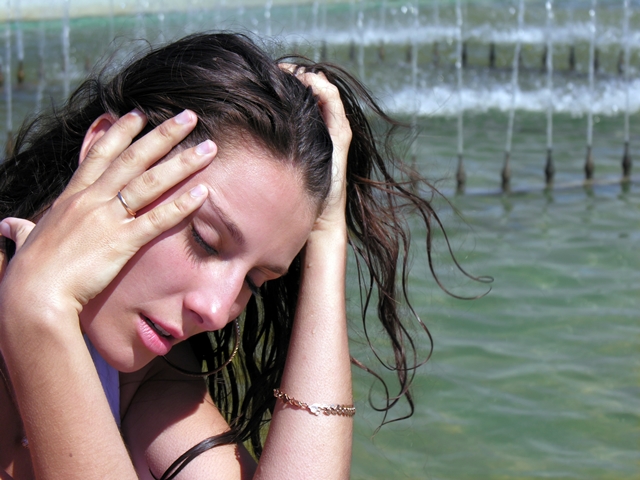People sometimes wonder whether it is safe to exercise in hot weather. It is ““ but it pays to be smart about it and prepare for physical activity in the heat.
Heat illness occurs when the body becomes overwhelmed. It happens gradually in stages, and it’s vitally important to not ignore fatigue, muscle cramping, stomach illness and headaches.
Here are five tips to handling heat-related illness:
- Hydrate: Drinking fluids before or during practices, games or other activities is not going to prevent dehydration. Hydration needs to start days ahead of your activities. And let’s be clear: water is the cornerstone for hydration. Sports drinks are good adjuncts to water; they do not replace water. Remember that they contain carbohydrates that not only equate to calories, but too much can negatively affect your overall performance.
- Eat right. You can’t ignore how and when you eat. It’s no secret that consistently eating a proper balance of foods is the best way to fuel your body. Children especially should eat breakfast, lunch and dinner every day. Athletes need plenty of protein and should eat a proper balance of carbohydrates. Greasy, fatty foods make you sluggish. Balanced meals have been a key for ages. That has not changed.
- Prep for activities. One way to help prevent heat illness is to gradually get used to the heat. You should not go from zero activity in a cooler environment to an intense workout or practice in the heat. Get outside. Walk. Do more each day. You never want to go from 0 to 100. Humidity around here is horrible. That can make you sweat quicker, and the heat will hit you harder. The time of day also plays a role. The hottest time is usually between 3-6 p.m.
- Stop what you’re doing. If you notice yourself, your child or a player you are coaching not performing to expectations, consider the onset of heat illness as a reason. Better to be cautious. If it progresses to heat stroke, the body shuts down from being overheated. At this point, a person will stop sweating, become confused, and other important functions in the body will begin to fail. It can become fatal. That’s why when you see or feel any of the initial signs of heat illness, activities should stop right away.
- Cool down quickly. If someone begins to suffer from heat illness, he or she should begin cooling down immediately. Get out of the heat and into a cooler location, such as the shade or indoors. You can wrap a cold rag or ice pack around your neck or put it under your arm pits. Shed equipment and clothing. Children and the elderly are more susceptible to heat illness because their bodies don’t adapt as well.
Dr. Tyler Browning practices sports medicine for St. Elizabeth Healthcare and family medicine for St. Elizabeth Physicians in Fort Thomas.

